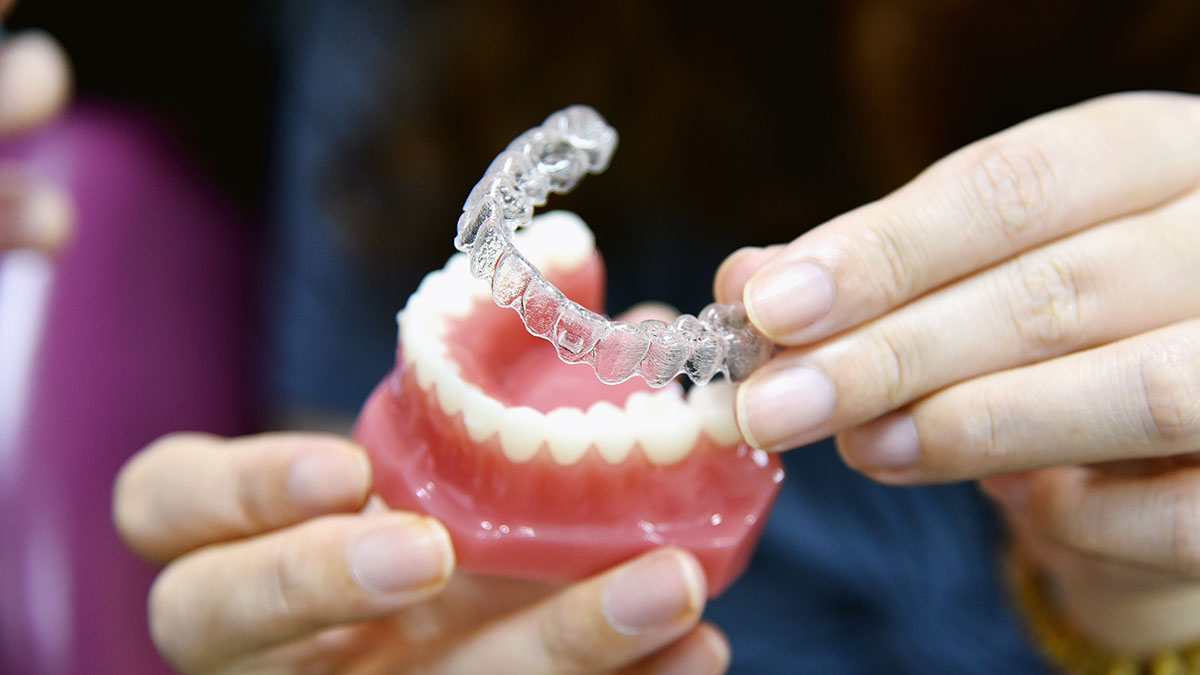
How Adult Braces Can Help Relieve Jaw Pain

Will I Need a Retainer After Invisalign®?
If you’ve ever experienced jaw discomfort, clicking, or headaches linked to temporomandibular joint (TMJ) disorder, you know how much it can disrupt your daily life. Many patients wonder if orthodontic solutions can help reduce these symptoms. The truth is that Invisalign®, a popular clear aligner treatment, may provide relief for some people dealing with TMJ issues. Our Invisalign orthodontists in Fort Wayne, IN, and surrounding areas, often hear this question, and the answer depends on the root cause of your jaw pain.
Understanding TMJ Pain
The temporomandibular joint connects your jawbone to your skull, and when it doesn’t function properly, it can lead to symptoms such as jaw pain, difficulty chewing, headaches, or even ear discomfort.
TMJ disorders may stem from teeth grinding (bruxism), jaw misalignment, arthritis, or stress-related clenching. While not every case can be resolved with orthodontics, addressing underlying bite problems can significantly improve TMJ function and reduce pain.
How Invisalign Works
Invisalign uses a series of custom clear aligners that gradually move your teeth into better alignment. Unlike traditional braces, these aligners are smooth, removable, and discreet. Each set of trays shifts your teeth slightly, helping create a more balanced bite. For patients whose TMJ discomfort is caused by misaligned teeth or bite imbalances, Invisalign treatment can be an effective solution.
Benefits of Invisalign for TMJ Relief
Improved Bite Alignment
Misaligned teeth can cause uneven pressure on the jaw joint. Invisalign works to bring your bite into harmony, reducing stress on the TMJ.
Reduced Teeth Grinding
Some patients find that wearing aligners helps reduce nighttime clenching or grinding, as the trays act as a protective barrier between teeth.
Customized and Comfortable
Since Invisalign clear aligners are tailored to fit your teeth, they provide comfort while making small adjustments that may help relieve jaw strain over time.
Non-Invasive Approach
Unlike surgical interventions, Invisalign aligners offer a conservative method to address bite-related TMJ issues without significant downtime.
When Invisalign May Not Be Enough
It’s important to note that not all TMJ disorders are caused by misaligned teeth. Stress, arthritis, or structural joint problems may require additional treatments such as night guards, physical therapy, or other dental interventions.
That’s why a professional evaluation is essential. Our orthodontists can determine if Invisalign alone will be effective or if it should be combined with other therapies for the best outcome.
The Importance of a Professional Consultation
If you’re struggling with jaw pain, the first step is to schedule an exam with our experienced orthodontists. They will assess your bite, teeth alignment, and jaw function. In some cases, can be part of a comprehensive treatment plan to reduce TMJ pain, restore comfort, and improve your smile.
Final Thoughts
TMJ pain can interfere with eating, speaking, and overall quality of life. For patients whose discomfort stems from bite problems or misaligned teeth, may help relieve pressure on the jaw joint and reduce painful symptoms.
Schedule an Invisalign Consultation
To find out if this treatment is right for you, we encourage you to schedule a consultation with our Invisalign orthodontists in Fort Wayne, IN, and surrounding areas. With expert guidance, you can take the first step toward both a healthier smile and a more comfortable jaw. Call Parrish Orthodontics at (260) 447-2568 or request an appointment online to get started.


